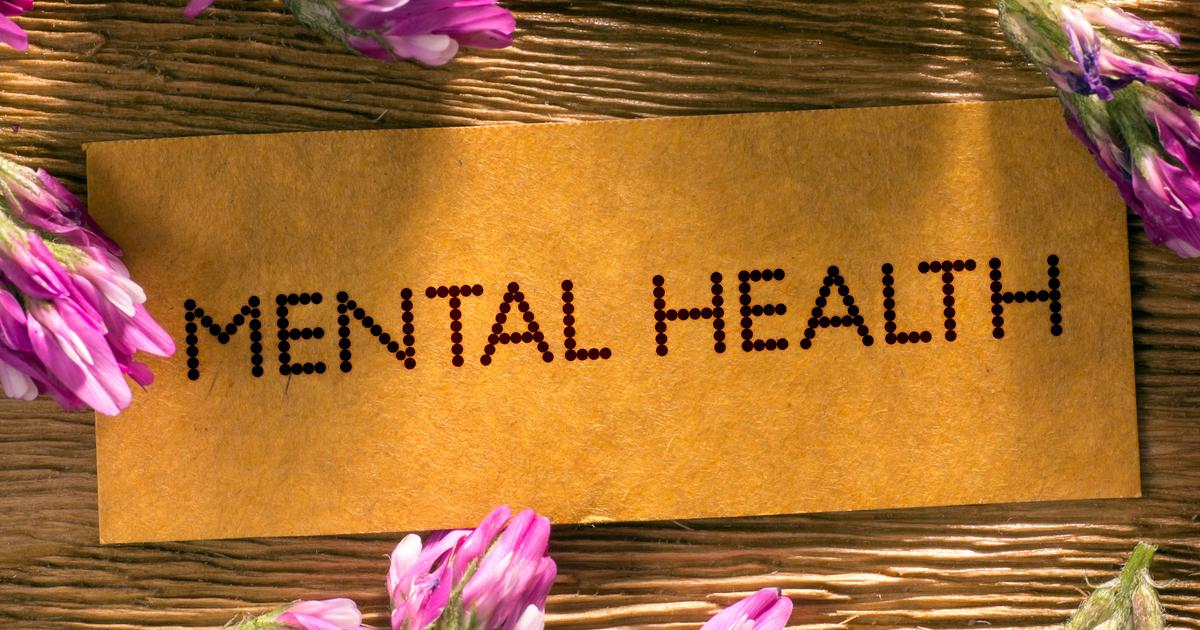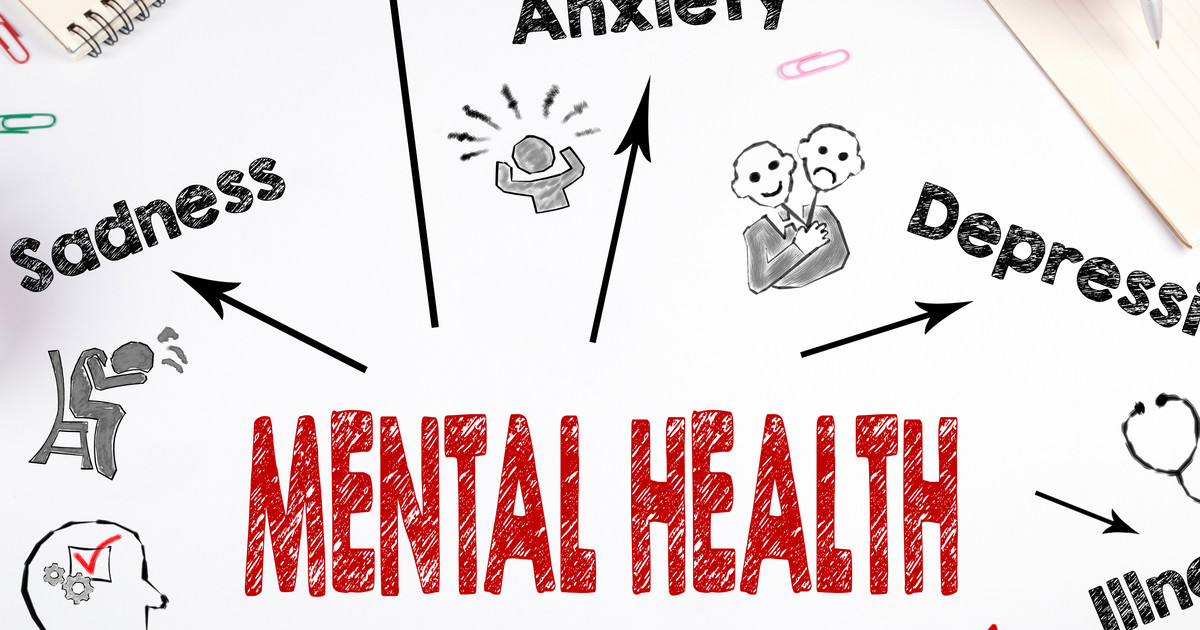A Complete Guide To The Importance Of Mental Health
Mental health encompasses an individual's social, psychological, and emotional well-being. It influences the ways that individuals feel, act and think. Mental health also impacts how humans communicate, cope with stress, and make decisions. Regardless of an individual's age or circumstances, good mental health is essential. Many experience mental health problems at some point in their lives. Some of these issues are chronic, while others last for only a short period. Mental health issues are influenced by life experiences, brain chemistry, genetics, and family history.
It is essential for individuals to seek mental health treatment when they are having problems. Patients often receive psychotherapy for mental illnesses. One effective strategy in therapy is cognitive behavioral therapy. Some individuals benefit from medication, including antidepressants as a depression treatment. However, before individuals can achieve effective treatment for mental health issues, they must understand the importance of mental health.
What Mental Health Entails

There are three overall factors under the mental health umbrella. The first is cognitive well-being, which refers to the health of an individual's thoughts. The abilities to reason, think critically, make logical decisions, and identify needs are all included. An individual with good cognitive well being can perceive the world and respond to it rationally. They do not make assumptions about what others are thinking or feeling without evidence. The second aspect of mental health is emotional well-being, which involves emotional health, as the name suggests. The emotions individuals feel are just one part of it. A mentally healthy person experiences appropriate emotional responses to their environment.
Another part of it is the self-awareness to recognize one's emotions. This ties into the third aspect of mental health, behavioral well-being, which is how individuals' thoughts and emotions are translated into action. An individual's behavioral well-being affects how they form relationships, have conversations, express feelings, deal with stress, form habits, and anything else that involves interacting with the world.
Benefits Of Positive Mental Health

It is important to note positive mental health is not something only some individuals can achieve. Even if an individual has a chronic mental illness, they can achieve positive mental health by committing to treatment and self-care. A person with positive mental health has a positive outlook on the world. Thus, they will find happiness and satisfaction in their life, even if they have not met specific goals. At the same time, they continue working toward their goals.
When individuals have positive mental health, they can enjoy everyday activities like gardening, reading a book, or watching television. They have the emotional energy to care about others. They are excited about the future while still enjoying the present. It is also easier to form and maintain healthy relationships of all kinds, whether romantic, platonic, or colleagues. Interacting with others benefits everyone involved because they do not have unhealthy expectations or toxic behaviors. Most importantly, when individuals recognize negativity in themselves or their life, they identify and take steps to help it.
Warning Signs Of Poor Mental Health

There are dozens of different mental illnesses, and each presents with other symptoms. The unifying element of mental illness is it causes problems with an individual's functioning or happiness. Some of the most common and well-known disorders include depression, anxiety, addictive behaviors, eating disorders, and schizophrenia. It is essential to know the warning signs so an individual or a loved one can seek treatment if necessary. On a broad scale, mental health issues encompass any problems with thoughts, behaviors, or emotions that inhibit an individual's day-to-day functioning or cause distress.
Affected individuals might feel sad for no reason, unhappy with their life, or uninterested in their hobbies. They may also experience excessive stress or worry in different situations. They may be tired and feel the need to withdraw from their social life and family members. Affected individuals may also be unable to cope with stress and may resort to unhealthy coping mechanisms or addictive behaviors. Excessive hostility and anger are signs of mental health issues, as are suicidal thoughts.
Dangers Of Poor Mental Health

There are several dangers of poor mental health, some of which tie in with physical health. For example, patients with schizophrenia and other psychotic disorders often do not receive treatment for other physical health conditions like heart issues. Nevertheless, schizophrenia symptoms are the cause of the majority of problems. It is known that individuals with depression might experience significant hopelessness, fatigue, feelings of worthlessness, and lack of interest in life. Those with anxiety may avoid essential things and miss out on life because of their fears.
Individuals with unpredictable bipolar disorder and borderline personality disorder may struggle with impulse control and maintaining relationships. Schizophrenia patients may withdraw from life entirely and stop caring for themselves. These disorders can leave individuals feeling like they have lost time, opportunities, and relationships with them. Poor mental health also makes it difficult to cope with stress. Some individuals burn out entirely or turn to drugs and alcohol to deal with their situation. One of the most severe dangers of poor mental health is suicide. If an individual is suicidal, they should talk to a doctor immediately and call a helpline for resources if needed.
How To Maintain Positive Mental Health

Maintaining positive mental health takes active effort whether an individual is struggling with mental health issues or not. Individuals need to make an active choice to care for themselves and view the world as positively as possible. If individuals do have serious struggles that impact their daily life, the best thing they can do is talk to a doctor. Medication and therapy are both available.
On a more immediate basis, individuals can employ strategies to be more self-aware and take care of themselves. One good tip is to find something positive about themselves and think about it. They should, of course, make sure that it is something they believe. Periodically individuals should remind themselves of that positive thing. Another strategy individuals can employ to write down things they are grateful for and make them happy.
Therapy And Mental Health

One way of approaching a wide variety of mental health issues is through psychotherapy. Psychotherapy allows patients to understand those negative feelings affecting their lives, such as anxiety and depression, and turn them into a productive and positive outlook. This form of therapy is not only about talking; it may also include other forms of expression, such as painting, writing, acting, and music. Patients can also choose between attending individual or group sessions.
Some of the most common advantages of psychotherapy are learning relaxation techniques to effectively deal with daily stresses, improving overall mood, boosting self-confidence, understanding and achieving personal goals, and developing better relationship skills. Research shows that psychotherapy can improve general anxiety disorder symptoms, depression, social anxiety, obsessive-compulsive disorder, phobias, bipolar disorder, and panic disorders. This applies to when they are used alone or in conjunction with pharmacological treatments.
Causes Of Poor Mental Health

There is a wide range of factors that may end up causing poor mental health in patients. Besides, certain things may affect individuals more than others. Despite this, some general causes have been identified, such as specific injuries or conditions that affect an individual's mood or behavior, traumatic experiences as an adult, bullying, domestic violence as an adult, adult alcohol and drug misuse, or being a long-term caregiver for someone else.
Other causes may include homelessness, unemployment, long term exposure to stress, losing a loved one, financial instability, stigma or discrimination, and loneliness. Childhood abuse, trauma, and neglect as causes as well. Some mental health issues like schizophrenia may run in families, or some mental health problems may be associated with specific imbalances in some brain chemicals. Whatever the cause might be, this does not mean that mental health is any less severe than other illness and deserves treatment and recognition.
How Mental And Physical Health Are Connected

Even though mind and body tend to be considered two different things, there is a close link between them. Poor physical health leads patients to an increased risk of developing certain conditions. The reason for this is that, in most cases, those with poor mental health conditions are less likely to receive proper medical attention. Certain life factors such as exercise, smoking, and diet considerably affect the physical and psychological state. For example, individuals with depression or schizophrenia tend to smoke more than any others. In addition, it has been proven that psoriasis is commonly triggered by stress. Psoriasis is a skin condition characterized by red, flaky sores on the surface of the skin. A person's body is a physical reflection of how they feel inside.
Stigma Surrounding Mental Illness

Individuals who experience mental illnesses also tend to be haunted by stigma and discrimination. Stigma occurs when an individual has a negative perception of someone because of a particular attribute or characteristic, such as cultural background, a disability, skin color, or mental illness. If someone mistreats an individual due to a mental illness, it is considered discrimination. These two factors can make life even worse for those who have mental conditions. Some of its harmful effects are self-doubt, physical violence, bullying, or harassment, fewer social interaction or employment opportunities, lack of understanding by family and friends, reluctance to get help or seek treatment, feelings of isolation, hopelessness, and shame.
Some useful ways of dealing with stigma include understanding that it is not personal and that an illness does not define who a person is. Additional methods include connecting with others, not hiding the mental illness, and getting the cognitive treatment needed. If one of your loved ones believe that they have been discriminated against, do some research and find out more about legislation that protects people's rights with mental illnesses.
Most Common Mental Illnesses

It is crucial to define mental health as the physiological and emotional well-being. Well-balanced mental health helps individuals lead healthy and happy lives. Mental illnesses mostly affect the way people think and feel. They can be influenced by a wide variety of factors such as biology, genetics, environment, and daily habits. The National Institute of Mental Health claims that women are more likely to develop severe mental illness than men.
There are over three hundred mental health disorders recognized by the Diagnostic and Statistical Manual of Mental Disorders. However, the ones that mostly affect individuals in the United States are social anxiety disorder, post-traumatic stress disorder, schizophrenia, major depressive disorder, obsessive-compulsive disorder, generalized anxiety disorder, and major depressive disorder. Some common mental health signs include insomnia, fatigue, irritability, confusion, fright, anxiety, helplessness, numbness or lack of empathy, extreme mood swings, constant arguing or fighting with family members and friends, smoking, drinking, and using illegal substances. If a loved one has been experiencing any of these symptoms, do not hesitate to ask for help.